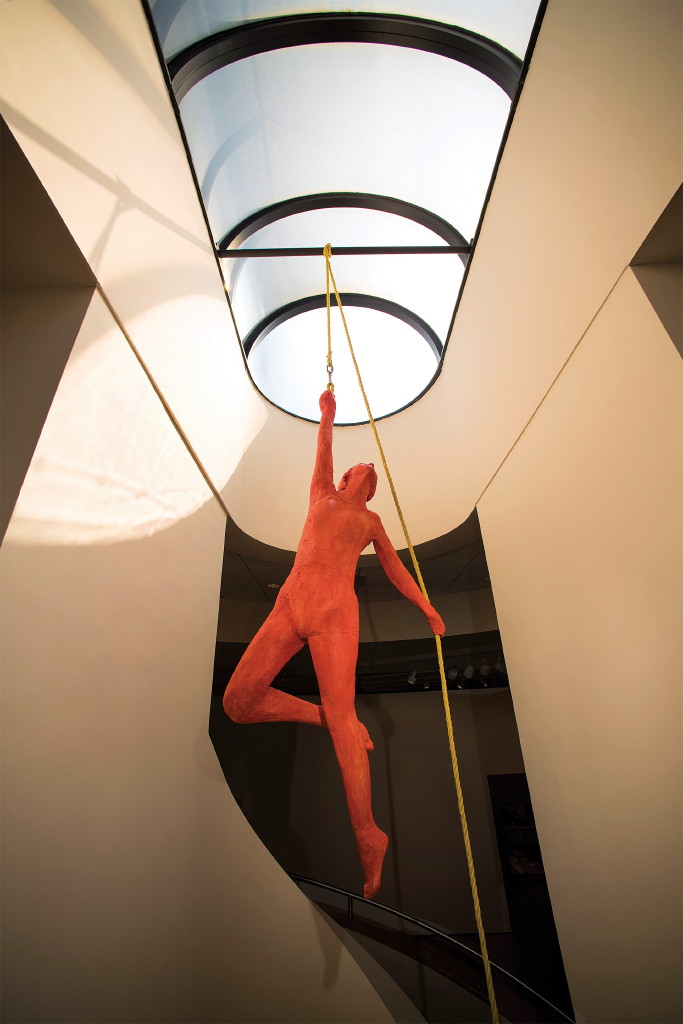The Zimmerli Art Museum at Rutgers celebrates the life and achievements of its late director Thomas Sokolowski – an activist and arts leader since the early 1980s – during Art Before/After Hours, with live virtual programming on Dec. 1.
The date also marks the annual observation of Day With(out) Art/World AIDS Day. Since 1989, Dec. 1 has served as a national day of action and mourning in response to the HIV/AIDS crisis initiated by Visual AIDS, an organization that Sokolowski helped found, according to information provided by the Zimmerli.
The schedule and registration details are available at go.rutgers.edu/December1. This program is presented in collaboration with Rutgers Global and Mason Gross School of the Arts.
Sokolowski became the Zimmerli’s director in the fall of 2017 and passed away in May of this year.
“Tom’s legacy reaches beyond the art world and the art museum,“ Donna Gustafson, the Zimmerli’s interim director and curator of American and Modern Art, Mellon Director of Academic Programs, said in the statement “and Tom knew a lot of people. We can list his accomplishments as a curator, an educator and a museum leader. But his time as an activist in the 1980s continues to have an impact as we navigate illness, stigma and new challenges to public health. Tom’s work with Visual AIDS and in the museum presenting political art and bringing important conversations into view had a huge impact. We celebrate Tom’s life and legacy as we mark Day With(out) Art and continue to raise awareness about the continuing presence of HIV/AIDS in the world.”
Art Before/After Hours kicks off at 9 a.m. with a live Zoom screening of “Transmissions,” six videos commissioned by Visual AIDS that consider the impact of HIV and AIDS beyond the United States. The program brings together artists working across the world: Jorge Bordello (Mexico), Gevi Dimitrakopoulou (Greece), Lucía Egaña Rojas (Chile/Spain), Las Indetectables (Chile), Charan Singh (India/U.K.), and George Stanley (Uganda).
The program does not intend to give a comprehensive account of the global AIDS epidemic, but provides a platform for a diversity of voices, according to the statement.
The videos cover a broad range of subjects, such as the erasure of women living with HIV in South America, ineffective Western public health campaigns in India, and the realities of stigma and disclosure for young people in Uganda. As the world continues to adapt to living with COVID-19, these videos offer an opportunity to reflect on the resonances and differences between the two epidemics and their uneven distribution across geography, race and gender, according to the statement.
Programming picks up again at 7 p.m., with a live Zoom panel discussion about the historical and contemporary intersections of HIV/AIDS advocacy and the arts. Visual artist and Mason Gross professor Jeanine Oleson moderates a conversation with Nelson Santos, an artist, curator and former director of Visual AIDS; Allen Frame, a photographer and writer who has long worked with Visual AIDS; Dr. Perry Halkitis, dean of the Rutgers School of Public Health; and Gustafson.
Throughout the day, the Zimmerli will post new content on Facebook, Twitter and Instagram.
In addition, the museum will debut a short documentary about Sokolowski, created by 2019 Rutgers alumnus Sam Vladimirsky, who interned at the Zimmerli and now works as a filmmaker and photographer in New York City.
Art Before/After Hours is the virtual version of the Zimmerli’s popular longtime program Art after Hours: First Tuesdays. A recording of the debut Art Before/After Hours from Oct. 6 is available on Zimmerli at Home.
The Zimmerli remains closed to the public and in-person programs are suspended until further notice. News regarding operations will be posted on the museum’s home page at http://zimmerlimuseum.rutgers.edu/

